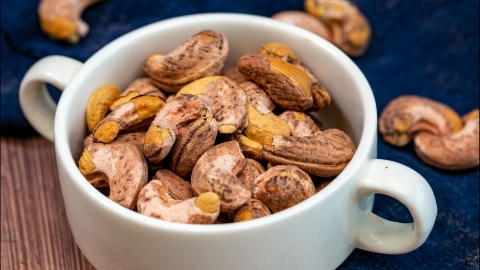What should patients with kidney stones avoid eating?
Generally, patients with kidney stones should avoid foods such as high-oxalate spinach, high-purine animal offal, high-salt pickled foods, high-sugar desserts, excessive nuts, and medications such as vitamin C tablets, calcium carbonate tablets, furosemide tablets, rhubarb tablets, and sulfadiazine tablets. Detailed explanations are as follows:
I. Foods
1. High-oxalate spinach: Spinach contains large amounts of oxalic acid, which easily combines with calcium in the body to form calcium oxalate stones. This can cause existing stones to grow or trigger new ones, increasing the metabolic burden on the kidneys and hindering disease management.
2. High-purine animal offal: Animal offal is extremely high in purines. After purine metabolism, uric acid is produced. Excessive uric acid can easily form uric acid stones and may also affect urine pH, creating conditions favorable to stone formation, thereby worsening kidney stone problems.
3. High-salt pickled foods: Pickled foods have high salt content. Excessive salt intake increases urinary calcium excretion, raising the likelihood of calcium binding with substances like oxalate and uric acid, which can promote stone formation and increase the filtration burden on the kidneys.
4. High-sugar desserts: Desserts are high in sugar. Excess sugar may disrupt the metabolic balance of calcium and oxalate in urine, increasing calcium excretion and the risk of stone formation. It may also lead to obesity, indirectly harming kidney health.
5. Excessive nuts: Although nuts are nutritious, some varieties are high in oxalate or purine. Eating too many nuts may lead to oxalate or purine accumulation in the body, potentially promoting stone formation. Nut consumption should therefore be strictly controlled.

II. Medications
1. Vitamin C tablets: Excessive intake of vitamin C tablets may result in excess vitamin C being converted into oxalic acid. Oxalic acid combines with calcium to form calcium oxalate stones, possibly causing kidney stones to grow or triggering new ones.
2. Calcium carbonate tablets: For patients with calcium oxalate stones who already consume sufficient dietary calcium, additional calcium carbonate intake increases calcium levels in the body, raising the likelihood of calcium binding with oxalate and promoting stone formation.
3. Furosemide tablets: This is a potent diuretic. Long-term or improper use accelerates urine excretion, increasing the concentration of substances like calcium and oxalate in urine, thereby raising the risk of stone formation. It may also affect kidney function.
4. Rhubarb tablets: These contain significant amounts of oxalic acid. Consumption increases oxalate intake, which combines with calcium to form calcium oxalate stones, potentially worsening kidney stone conditions. Additionally, rhubarb's stimulant properties may affect intestinal and kidney health.
5. Sulfadiazine tablets: This is a sulfonamide antibiotic. The drug's metabolites have low solubility in urine and tend to crystallize. Accumulated crystals may form stones, increasing the burden on the kidneys.
Kidney stone patients should maintain a bland, low-oxalate, and low-purine diet in daily life, drink plenty of plain water to promote urination, and develop healthy lifestyle habits, avoiding prolonged sitting and urine retention.






